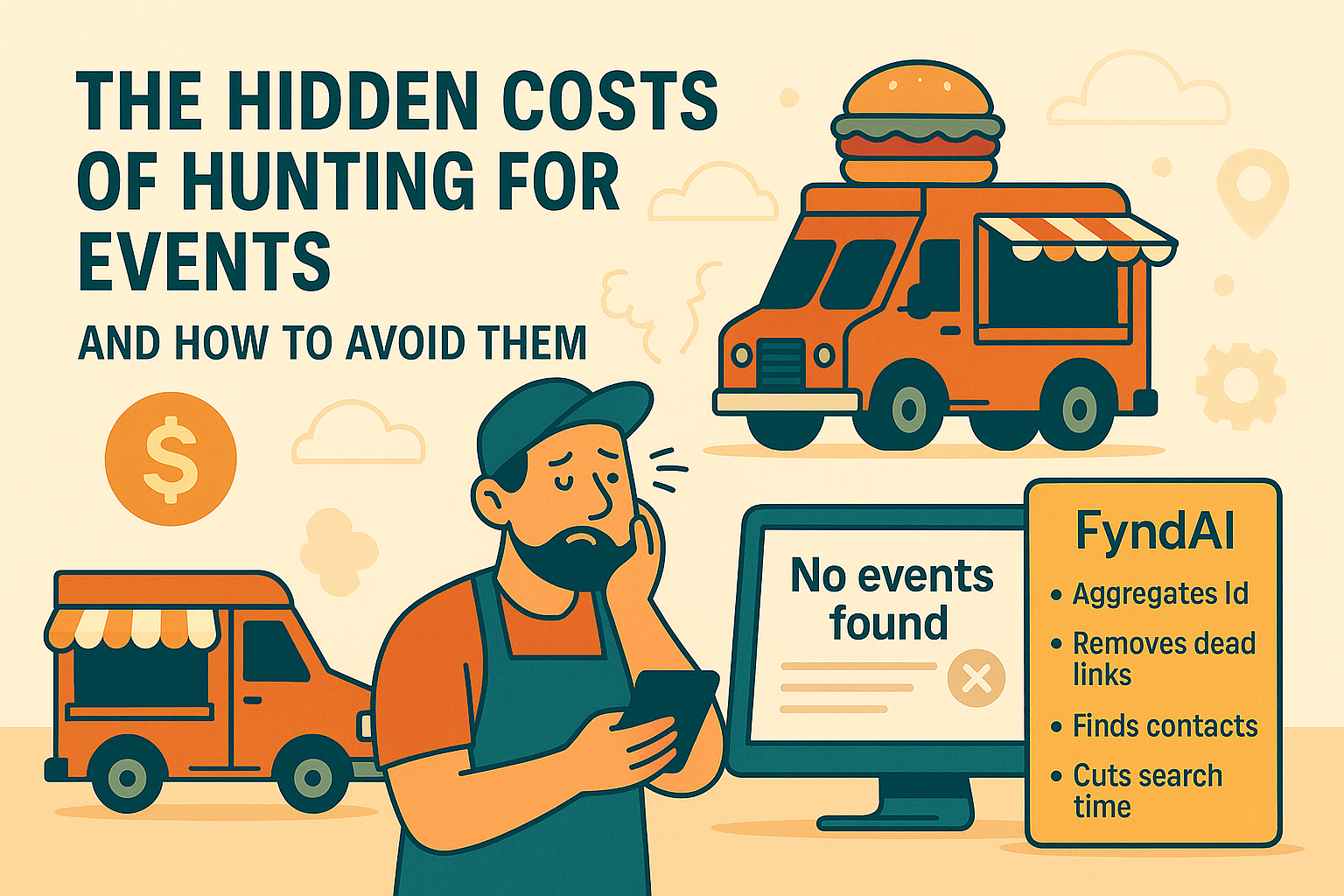Intro
Most food truck owners know finding events takes time. What’s harder to see is how that time — and the missed chances that come with it — quietly eats into profits.
On the surface, searching feels like a free activity. Scroll Facebook for a while, make a few Google searches, ask around. But when you add up the hours, the dead ends, and the weekends lost because you didn’t hear about an event, the costs are much higher than most vendors realize.
Internal link: Background: Where to Find Food Truck Events in 2025 (Complete Guide)
The Costs You Don’t See
The first and biggest hidden cost is missed weekends. If you skip one local festival because you never heard about it, that could mean $1,500–$2,500 in lost sales. For an independent truck, that’s the difference between a strong month and a weak one.
Then there’s the time drain. Many vendors spend 5–10 hours each week scouring Facebook groups, running Google searches, or checking old event websites. That’s time you’re not prepping, marketing, or serving customers.
And even when you do find events, you hit dead ends. Event pages that no longer exist, outdated applications, or contact info that goes nowhere. That leads to the final hidden cost: unorganized outreach. Chasing organizers across multiple platforms creates delays — and those delays reduce your odds of securing a spot.
Quick Facts
- One lost festival = $1,500+ in missed revenue
- 5–10 hours per week wasted on searching
- Outdated links and dead contacts stall progress
- Slow response times lower acceptance rates
The Math Adds Up
The numbers paint a clearer picture:
- Missing just one event per month can cost over $12,000 per year.
- At 5–10 hours per week, that’s 250–500 hours per year spent hunting leads.
- If you’re late applying because you couldn’t find the right contact, another truck takes the spot.
This is why so many food trucks feel like they’re working hard but leaving money on the table.
How AI Reduces These Costs
AI-powered event discovery takes those hidden costs off the table. Instead of hunting across multiple platforms, all leads are aggregated in one place. Outdated pages get filtered out, and multiple points of contact are provided for each event — so if an email bounces, you still have a phone number or form to fall back on.
You also gain the ability to filter by what matters most: attendance size, event type, day of week, city, county, or state.
For many vendors, that means replacing hours of searching with just minutes of review.
What AI Does for You
- Aggregates all leads into one dashboard
- Validates links and removes dead ends
- Provides multiple organizer contacts per event
- Cuts search time by up to 75%
The result? More weekends booked, fewer wasted hours, and better use of your time.
Conclusion
Hunting for events has a price tag — and it’s bigger than most food trucks realize. Every missed festival, every wasted hour, every failed contact adds up.
AI doesn’t just save time — it protects revenue by making sure no opportunity slips past you.
Read More:
- Compare methods: Word of Mouth vs Google vs Event Platforms
- See how vendors differ: Independent Food Trucks vs Franchises
